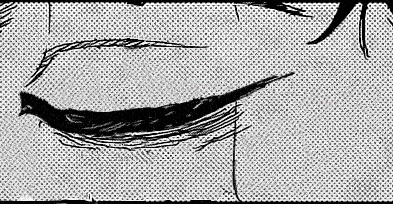Owly wrote:Doctor MJ wrote:iggymcfrack wrote:You say Malone’s seen as the Batman to Stockton’s Robin, but I don’t see why. Of all the superstar pairings, they seem the most even to me. The impact data is ambiguous which one was more valuable and Stockton had better numbers in both the regular season and postseason. From ‘87 through ‘02, Malone had a BPM of 5.6 in the regular season and 4.7 in the postseason. Stockton had a BPM of 7.4 in the regular season and 6.3 in the postseason. Where’s the evidence that Malone was any more valuable, let alone massively so?
”
Biggest thing for me is this:
When the Jazz became a serious threat to win a title, it happened with the team putting more and more primacy on Malone and less and less on Stockton.
With the assist numbers for example, Stockton's go down in the best years, and while many have argued this was about Hornacek coming in as a secondary playmaker, if that's all that was going on, we'd expect Malone's to go down too. Instead they go up. Even if we ignore what that implies about the replaceability of Stockton's playmaking talent, it's hard to fathom arguing Stockton should have been the MVP candidate when the Jazz had a serious MVP candidate.
Now, I do think that Stockton's style of play aged considerably better than Malone's come the 21st century, and that's a feather in his cap, but for me to ever seriously consider Stockton over Malone in the future, I'd have to see some pretty massive impact indicators in the years we don't yet have +/- for. Even then, it's just tough for me when the argument would be "Sure Malone was the one carrying them to contender status, but if you include all the surrounding years where they weren't really contenders, Stockton contributed more total value." I can see someone else being swayed by that, but for me in a league where the championship is the thing, the top player on a given contending core is generally the guy who was most important when the contending happened.
Minor first glance thoughts not presently inclined to go deep
1) Primacy and goodness aren't the same. Malone "carrying" then is not really a given and is more dubious when granted without question whilst speaking as someone coming down more on the Stockton side (to the extent this needs to be zero-sum, which at at two-player level ... two players who seemed to work quite well together fwiw ... I don't think it does).
2) The "happened" refrain could just as well be 'it happened when they got a third good player.'
3) A smallish guard who has had some use as a combo guard and a one on both previous teams is probably more likely to eat into the stats (box and impact) of a 1 than a 4.
4) "Replacability" ... I think there's a multi-year and single year data trail especially on the RAPM-side, one that says Hornacek was himself excellent and yet, despite having a good somewhat similar player, that Stockton wasn't replaceable.
1) Primacy is not goodness. Very true, and as I've alluded to throughout this project, I'm trying not to rely on projecting goodness with my criteria. I understand why some think Stockton could have been a super-Nash if only he'd had Nash's opportunity, but that's not what actually happened.
Re: two-players who work quite well together. Right, but of course we're talking a lot here about the fact that Malone was playing more and more minutes without Stockton. Eventually we see Malone's volume scoring approach age out, but while the team is a contender, the impact indicators tend to side with Malone as the more essential piece.
2) "happened" when they got a 3rd good player. Sure, but that doesn't explain why the team concentrated more on Malone when they got the 3rd player.
3) Hornacek similar to Stockton, makes sense he eats into Stockton's stats. Sure, but if the Jazz were fortunate enough to acquire a second guy who must be an all-timer great playmaker in order to justify stealing primacy from the first, why is the power forward getting more assists?
4) RAPM loves Stockton! RAPM is largely geared toward the post-contention years. The +/- data I see in the '90s going back to '93-94 seems to favor Malone.
But to be clear: What I'm really saying here is that if Stockton's APG was an indication of his supreme utterly unable-to-be-matched-in-any-possession playmaking, we'd expect that the Jazz best years would be making maximal use of his assist game...and that's just not what we see.
Doesn't mean Stockton wasn't the best passer on the team - I think he was - but it does mean that the most effective strategy we ever saw with those Jazz wasn't about letting Stockton make as many playmaking decisions as possible and having everyone else just feed off of that...and by contrast with guys like Magic & Nash, I'd argue that letting the one guy make the decisions literally was how the team peaked.






















